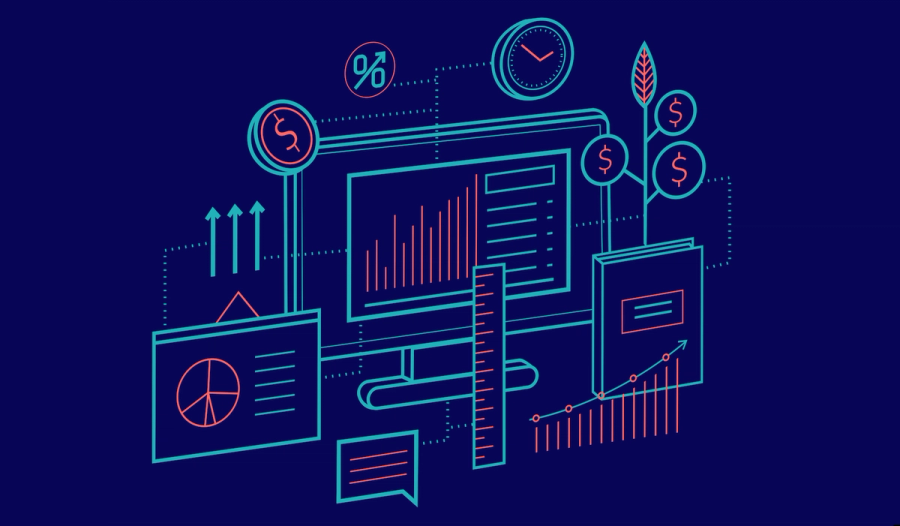The Power of Data-Driven Campaigns: Improving on Traditional Marketing Strategies
Written By Jacob Merrill | 4 min. read |

Ever wondered why some marketing campaigns just work while others fall flat? The secret lies in data-driven campaigns, an approach you need to get on board with if you’re in the marketing world. Let's explore data-driven strategies and how they can boost your marketing efforts.
Understanding the Foundation of Data-Driven Campaigns
At its core, a data-driven campaign is a marketing strategy that relies on insights derived from data analysis. Unlike traditional campaigns driven by intuition or a hunch, data-driven approaches leverage information about customer behavior, preferences, and interactions to tailor messages and strategies.
This shift from gut feelings to informed decision-making is a must in marketing. It allows marketers to understand their audience more deeply, leading to more personalized and effective campaigns.
How Data-Driven Campaigns Work
Imagine marketers and data analysts collaborating seamlessly, each playing a role in the campaign's success. Marketers utilize data analytics tools to gather insights into customer behavior, demographics, and engagement metrics. Armed with this information, they craft targeted messages and optimize campaign elements for maximum impact.
Data-driven campaigns are agile and adaptable. They allow marketers to tweak real-time strategies based on ongoing analytics, ensuring the most effective approach is always in play
Benefits of Data-Driven Campaigns and Why You Need Them
1. Precision Targeting
Data-driven campaigns enable hyper-targeted marketing. By understanding customer segments and preferences, marketers can tailor messages to resonate with specific audiences, increasing the likelihood of engagement and conversions.
2. Improved ROI
With data guiding decisions, marketing budgets are allocated more efficiently. Analyzing the performance of different channels and strategies helps identify what works and what doesn't, leading to a higher return on investment.
3. Better Customer Experience
Personalization is the hallmark of data-driven campaigns. By delivering relevant content and offers based on individual preferences, brands create a more satisfying and engaging customer experience.
4. Real-Time Optimization
In the fast-paced digital landscape, adaptability is key. Data-driven campaigns allow marketers to monitor real-time performance and make instant adjustments to maximize effectiveness.
5. Data-Backed Insights
Beyond immediate campaign success, data-driven approaches provide valuable insights for long-term strategy. Understanding customer trends and behaviors informs future campaigns and overall business strategy.
Data-Driven Campaigns in Action
The success of data-driven campaigns is evident across various industries. Notable examples include:
Amazon: Leveraging customer data for personalized recommendations, enhancing the shopping experience.
Spotify: Analyzing user preferences to curate personalized playlists and recommendations.
Netflix: Using viewer data to recommend content and optimize user interfaces.
TikTok: By tracking your video preferences, likes, and shares, TikTok tailors your "For You" page, curating an endless stream of content that aligns with your unique tastes.
YouTube: Using user watch history, likes, and subscriptions to recommend videos tailored to individual interests. The platform's recommendation algorithm enhances user engagement by suggesting content aligned with each user's preferences.
Nike: Offering personalized product recommendations to its customers. Analyzing purchase history, browsing behavior, and preferences, Nike suggests sports apparel and footwear that align with individual styles and activities.
When to Implement Data-Driven Campaigns
The applicability of data-driven campaigns can differ depending on the industry and scenarios:
Product Launches: This is ideal for optimizing product launches by targeting specific audience segments based on market research and historical data.
E-commerce Platforms: Effective in driving personalized recommendations, improving user experience, and increasing customer retention.
Lead Generation: This is suited for B2B marketing. It guides lead generation efforts with data-backed insights into target industries and decision-makers.
Brand Building: Well-suited for building brand awareness and loyalty by tailoring messaging to resonate with the target audience.
When to Approach Traditional Campaigns Instead
While data-driven campaigns offer substantial advantages, there are instances where a more traditional approach might be preferable:
Limited Access to Data: A business needs the necessary data infrastructure or insights to ensure a feasible data-driven approach.
Established Brand with Consistent Audience: Traditional campaigns may continue to resonate without the need for granular data analysis for brands with a well-defined and consistent customer base.
Budget Constraints: When resources are limited, a simplified traditional campaign may be a more practical choice.
Bottom Line
In summary, data-driven campaigns represent a shift in the marketing landscape. By harnessing the power of data, marketers can elevate their strategies, driving engagement and boosting ROI. In an era where information is king, embracing data-driven approaches isn't just a choice – it's a strategic imperative.
Ready to Revolutionize Your Marketing Strategy with Data-Driven Campaigns?
We have the expertise to turn your data into actionable insights. Let's embark on a journey of marketing innovation together. Contact us to discuss how we can elevate your next campaign with data-driven campaigns.